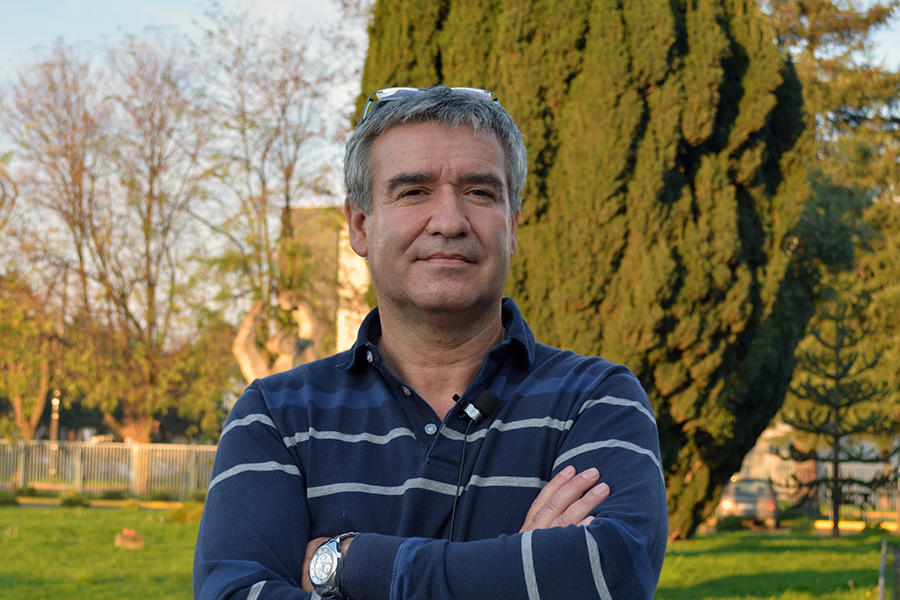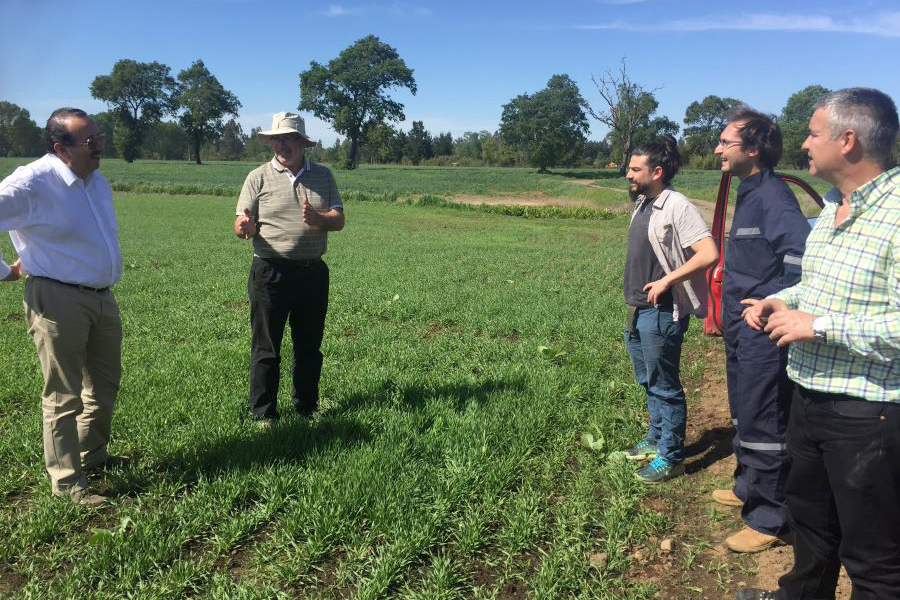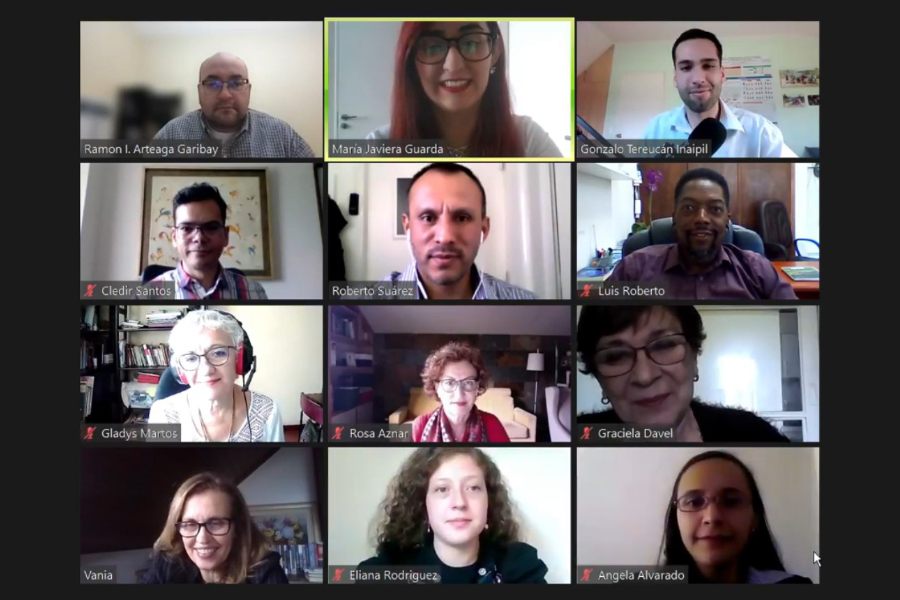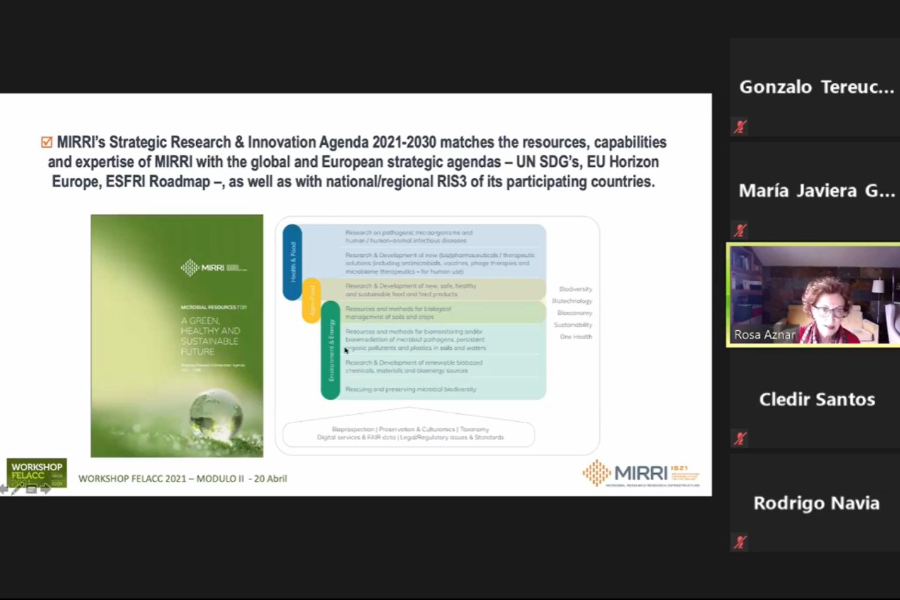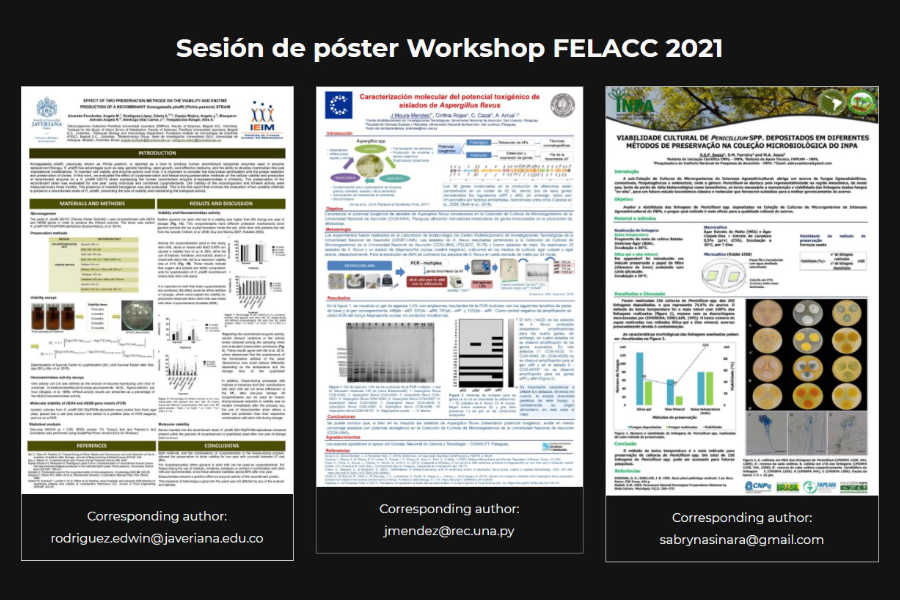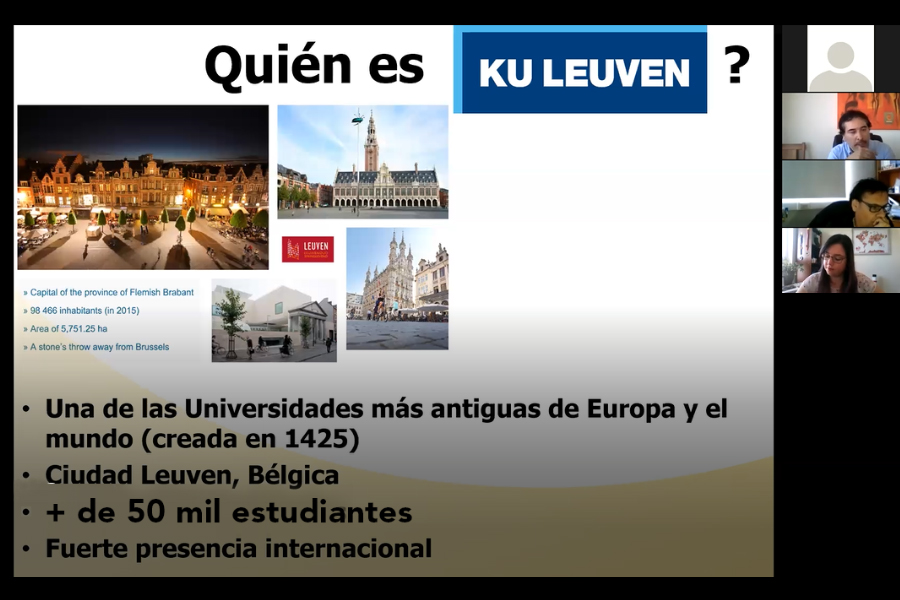|
Center for World University Rankings lists UFRO among the top 10 in Chile |
In its recent report, the Center for World University Rankings (CWUR) 2021-2022 once again ranks the Universidad de La Frontera (UFRO) among the ten best universities in Chile. This year, it reached place 9 in Chile, and at the international level it is among the best 1.500 universities, maintaining its range compared to the previous report of 2020-2021. This is the only academic ranking of global universities that assesses the quality of education, alumni employment, the quality of faculty, and the research performance. For the report, CWUR makes a classification by subject in 227 categories, according to the number of research papers published in top-level journals. The ranking listed 14 Chilean universities, of which UFRO is in place number 9 and in third place among the state universities. At the international level, it is ranked in 1467th place, climbing 50 positions compared to the previous edition of the ranking. CWUR Since 2012, the Center for World University Rankings has been publishing this report, which started as a project with the aim of rating the top 100 world universities. It expanded over the years, listing the top two thousand out of nearly twenty thousand universities worldwide in 2019. ASSESSED CRITERIA The criteria assessed by this ranking are the Quality of Education (25%); Alumni Employment (25%); Quality of Faculty (10%); Research Performance and Research Output (10%); High-Quality Publications (10%); Influence (10%); and Citations (10%). CLICK HERE TO SEE THE RANKING
Written by: Communications Office, UFRO
|
|
Dr. José María Rey Benayas, Honorary Professor of the Faculty of Agricultural and Forestry Science at UFRO, is part of the World´s Top 2% Scientists Ranking, which lists the most influential scientists in the world. |
Stanford University, one of the best universities in the world, created the study called “Updated science-wide author databases of standardized citation indicators”, which leads to the ranking of 2% of the best scientists in the world, according to their scientific productivity. The latest version of this ranking also listed Dr. José María Rey Benayas, Honorary Professor of the Faculty of Agricultural and Forestry Science at the university Universidad de La Frontera (UFRO), who receives this important international recognition thanks to his extensive experience in the field of Ecosystem Restoration. Regarding this important achievement, Dr. Rey Benayas explains that, for him, this feels like a recognition of his long academic career in which he has always set the highest standards for himself. “There is no doubt that my ties to UFRO and the Faculty of Agricultural and Forestry Science are part of the reasons I achieved this recognition, since I have been participating in different initiatives, projects and publications with several researchers for many years already,” he commented from Spain, where he lives at the moment. According to Dr. Adison Altamirano, the Dean of the Faculty of Agricultural and Forestry Science at UFRO, it is an honor that a professor of the Faculty is distinguished as one of the best scientists in the world. “Dr. Rey Benayas has been working with Universidad de La Frontera for more than 10 years now, maintaining a fruitful and enriching relationship,” he said, and highlighted his participation in scientific publications, postgraduate courses in the Master's Program in Natural Resource Management and the Doctoral Program in Agri-food Sciences and Environment, as well as his constant disposition to hold conferences for professionals and farmers of our region and to work on research projects. Besides, the dean pointed out that “the contribution of Dr. Rey Benayas is essential for the development of a comprehensive vision of the activities at the Faculty's Experimental Campus Maquehue, which encourages us to develop a strategy that allows us to harmonize the production of agri-food and the conservation of the environment”. CAREER José María Rey Benayas is a Professor at the University of Alcalá (Spain), since 1994. He earned his Ph.D. at the Autonomous University of Madrid (Spain) in 1990 and completed his postdoctoral studies at Northern Illinois University and GeoEcoArc Research (USA). During his prolific academic career, together with colleagues from different parts of the world, he established the International Foundation for the Restoration of Ecosystems (FIRE), in order to transfer academic knowledge to society; a project that also led to the establishment of FIRE-Chile, which was established in alliance with UFRO. He has been collaborating with Chile since 2001, thus contributing to the scientific development of the country, through research projects and the training of researchers, of which most of them have established themselves in their fields. He has also contributed to the training of professionals in the Master's Degree in Ecosystem Restoration. Several Chilean students attended this program and specific courses, especially at the Universidad de La Frontera. “Apart from the academic activities, Dr. Rey Benayas is an academic with a unique vision and a great commitment to public universities, the relationship with society and the conservation of nature, which has set an example for our students and academics,” the dean concludes. Written by: UFRO Communications Office
|
|
The second module of the workshop, which was organized by the Latin American Federation for Culture Collections and the Faculty of Engineering and Science of the Universidad de La Frontera, took place on April 20. |
On April 20, the international scientific community got together in the second module of the workshop “Ex situ Preservation and Data Management in Collections of Microbial Cultures”, which was organized by the Latin American Federation for Culture Collections (FELACC) and the Faculty of Engineering and Science of the university Universidad de La Frontera (UFRO), as well as the UFRO Research Center for Mycorrhizae and Agri-environmental Sustainability (CIMYSA) and the company for scientific dissemination Xplain. The workshop was carried out through the online platform Zoom, where researchers, academics, specialists, students, etc. from different countries were able to share and update their knowledge related to the ex-situ preservation of microorganisms and data management in the field of collections of microbial cultures. This module included presentations of five renowned speakers from Spain, Colombia, Argentina, Brazil and Mexico, what reflects the great development of the international research network established with the help of FELACC. On this occasion, the opening conference called “MIRRI, the portal for microbiological innovation in Europe” was held by Dr. Rosa Aznar, a full university professor of microbiology from the University of Valencia (Spain), director of the Spanish Type Culture Collection (CECT), and researcher in charge in Spain of the European Horizon 2020 funded project “IS_MIRRI21 Microbial Resource Research Infrastructure (MIRRI)”. Since 2020, MIRRI is recognized as the European Microbial Resource Research Infrastructure (https://www.mirri.org/) and, according to Dr. Aznar, the cooperation with Latin America is expected to become a reality in the near future, since the first approach with Chile and Brazil has already been made. IMPESSIONS “Many of us would not have been able to participate if the workshop wouldn’t have taken place online, and I am very pleased to see that we are able to carry out this kind of scientific events online, with participants from Colombia, Mexico, Argentina, Chile, and other countries. That means that science never stops. I would like to thank each and every one who is part of and participates in this kind of online events and who participates in the Collections of Microbial Cultures”, explained Dr. Roberto Suárez, the vice-president of FELACC, at the end of the workshop. Dr. Cledir Santos, who is an academic of the Department of Chemical Science and Natural Resources at UFRO, part of the FELACC Executive Board, and one of the organizers of the workshop, thanked the different institutions and people who made this event possible. He also pointed out that “this kind of accomplishments is the result of the efforts and commitment of the Universidad de La Frontera and its Faculty of Engineering and Science and of all those who are part of the Latin American Federation for Culture Collections, as well as the valuable support of UFROs CIMYSA and the company Xplain, and other units that are involved in the development of international scientific cooperation”. The research papers presented in the two modules of the workshop will soon be available on the official website of FELACC (http://felacc.cinvestav.mx/index.html) and the research posters can be found on the website of the company Xplain (https://xplain.cl/poster/), as an additional contribution to the consolidation and increase of international collaboration regarding ex-situ preservation of microorganisms and data management in the field of collections of microbial cultures.
Written by: Daphne Bormann |
|
UFRO is the only university in Latin America with which KU Leuven maintains a comprehensive Collaboration Agreement and a Double Degree Agreement, which has been signed in 2017. |
Students of the Doctorate in Natural Resource Sciences participated in a workshop about the Double Degree Agreement that the Universidad de La Frontera (UFRO) maintains with KU Leuven in Belgium. The university, which is among the best 50 universities in the world according to Times Higher Education, is one of the oldest universities in Europe (founded in 1425), and has more than 50 thousand students, with a high percentage of foreign students, especially in its graduate programs. Currently, KU Leuven maintains a comprehensive Collaboration Agreement and a Double Degree Agreement for Doctoral Programs with UFRO, which has been signed in 2017 and had been elaborated as an extension of the agreement between the Faculty of Agricultural and Forestry Science of UFRO and the Faculty of Bioscience Engineering of KU Leuven from 2009. The objective of the workshop, which was led by Dr. Adison Altamirano, the dean of the Faculty of Agricultural and Forestry Science at UFRO, Denise Lisperguier, the head of International Affairs of the same faculty, and Germán Catalán, a PhD student in Agri-Food Sciences and Environment, was to provide information about the options of a Double Degree. The speakers explained that this agreement focuses on the Science, Engineering and Technology Group of KU Leuven and that the interested students have to apply during the first year of their doctoral studies and that the applicants are required to have a supervisor from Ku Leuven. The students have to choose one of the universities as their main institution, and the doctoral student must comply with the regulations and guidelines of the institution of his/her choice. In addition, the students have to spend at least 10 months at the Belgian university, either in one long stay or in several short stays. Finally, the Board of Examiners for the Double Degree will consist of at least four examiners who have not been involved in the supervision of the student's work (1 of Ku Leuven, 1 of UFRO and 2 external examiners). The thesis defense must be in English and after successful completion, the students will receive a Doctoral Diploma from both universities. At the end of the workshop, the students were able to ask questions and to clear any doubts about the benefits and responsibilities of this program.
Written by: Doctorate in Natural Resource Sciences, UFRO
|
|
1,800,000 doses of the CanSino vaccine are about to arrive in Chile. It is the fourth vaccine that has been authorized in Chile in the fight against COVID-19. |
The CanSino vaccine has officially been approved by the Chilean Public Health Institute (ISP) on Wednesday, April 7. It requires one single dose and has also been authorized in five other countries. In Chile, the first doses of the vaccine – the clinical trial in Chile has been led by the university Universidad de La Frontera (UFRO) – will arrive next month and will be administered together with three other vaccines that have already been authorized in Chile some time ago. Unlike the other vaccines registered in Chile, CanSino requires only one dose, which makes it easier to administer. In addition, it requires a refrigeration temperature of between 2 and 8 degrees Celsius, which is the standard temperature at which most vaccines are stored, and which makes its transport easier. Dr. Eduardo Hebel, the Rector of UFRO, is glad about the decision of the Public Health Institute, since this will accelerate the vaccination process in Chile. He also thanked the researchers involved in the clinical trials for their great efforts. “It is a very powerful statement that the research carried out in the regions – in a rather centralized country, such as Chile – together with the collaborative work of the researchers, leads to specific and successful results. In this context, I would like to highlight the leadership of Dr. Fernando Lanas and Dr. Sergio Muñoz, who are part of our university and who led the clinical trial for Chile, together with the universities Universidad Austral and Universidad San Sebastian,” he said. Dr. Fernando Lanas received this news with great pleasure, pointing out that – according to the preliminary results of the phase 3 clinical trials carried out in Mexico, Argentina, Pakistan, Russia, Saudi Arabia and Chile – the vaccine has 91% efficacy against severe disease and 65% against symptomatic infection. A total of 1,800,000 doses are about to arrive in Chile. Meanwhile, the trial will continue until December 2021, monitoring the 3,500 inoculated patients who participated in phase 3 of the trial, which is led by UFRO.
Written by: Karimme Riadi Millas
|






